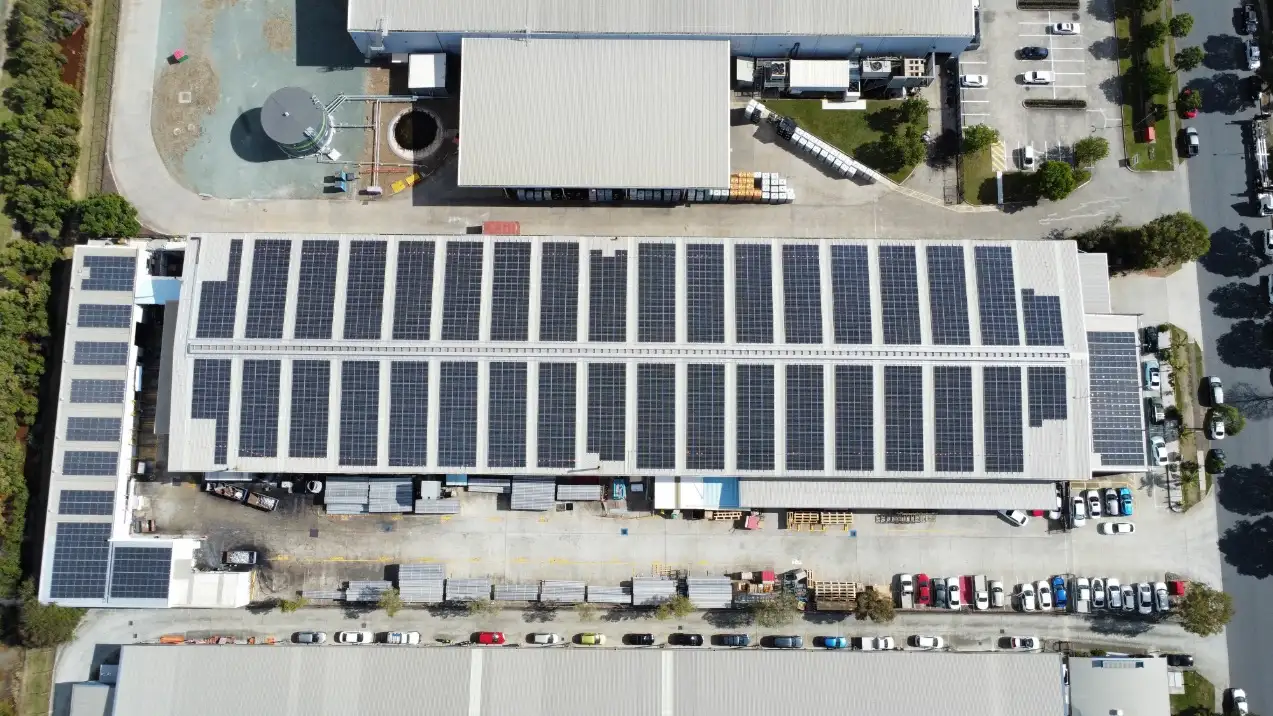How Does Solar Power Work to Sustain The Industrial Sector and Revolutionise Energy Consumption?

How Does Solar Power Work to Sustain Industries and Revolutionise Energy Consumption?
The industrial sector stands as one of the largest energy consumers globally, encompassing vital fields like manufacturing, mining, agriculture, and construction.
While the initial investment may seem significant, it pales in comparison to the long-term financial gains that accompany the adoption of solar energy. Solar energy stands as a priceless asset for these businesses and industries striving to lessen their ecological footprint and reduce costs. With a plethora of advantages, it’s no surprise that countless organisations have embraced this sustainable energy alternative as a reliable choice.
But how does solar power work within industries, how can it be harnessed, and how does it contribute to a sustainable future?
Understanding Solar Power Integration in Industries
The potential for solar energy is boundless, presenting businesses with a clean, renewable source of power with tremendous commercial applications. As businesses strive to reduce reliance on fossil fuels, solar energy emerges as a viable alternative. Solar panels and photovoltaic cells stand as cornerstone technologies, enabling businesses to harness sunlight and convert it into electricity with efficiency and cost-effectiveness. These technologies not only reduce carbon footprint but also offer tangible financial benefits, making sustainability a pragmatic choice for businesses of all sizes and industries.
Solar power generators offer versatile solutions for powering industries across various fronts.
Here are some examples:
Electricity Generation
- Solar Photovoltaic (PV) Systems: Generate electricity for:
- Machinery: Powering industrial equipment and machinery.
- Lighting: Efficient lighting solutions for work areas, reducing energy consumption.
Heat Generation
- Solar Thermal Systems: These systems use sunlight to generate heat, which can be used for various industrial processes, such as:
- Drying: Solar heat can be used to dry materials, like food or textiles.
- Distilling: Solar heat can be used to distil liquids, like water or chemicalsSolar Farms
Australia’s ample sunlight and expansive landscapes position it as an optimal setting for expansive solar farms capable of supplying renewable energy to homes and businesses nationwide. Despite notable progress in transitioning to renewable energy, Australia encounters substantial challenges.
The existing electricity grid, originally designed to accommodate large-scale power plants, presents hurdles in integrating renewable sources like solar farms. Nevertheless, with appropriate policies and investments, solar farms hold the potential to play a pivotal role in Australia’s journey towards a sustainable, low-carbon energy future.
These large-scale solar farms are capable of powering entire communities or regions. While these projects entail significant upfront investments, they offer substantial long-term dividends, including cost savings and environmental benefits such as reduced carbon emissions and air pollution.
And while solar farms are great at providing renewable energy, they also contribute to local economies by creating job opportunities.
Improved Sustainability and Public Perception
Embracing sustainability initiatives not only benefits the environment but also enhances a company’s public image. By actively demonstrating a commitment to sustainable practices, businesses signal to their stakeholders, including customers, investors, and the broader community, that they prioritise environmental responsibility, social impact and the “bigger picture”. This positive public perception can lead to increased company loyalty, improved customer trust, and enhanced reputation. Moreover, a strong sustainability focus can attract environmentally conscious consumers and investors who seek to align themselves with ethical and eco-friendly companies.
Want To Know More About How Solar Could Work To Power Your Business?
In Queensland’s industrial landscape, solar power emerges as a transformative force, reshaping energy consumption paradigms and fostering sustainable development. By harnessing the inherent potential of solar energy, industries can not only mitigate environmental impact but also bolster economic viability and competitiveness. To embark on your journey towards sustainable commercial or residential energy solutions for your business, reach out to DS Energy today.